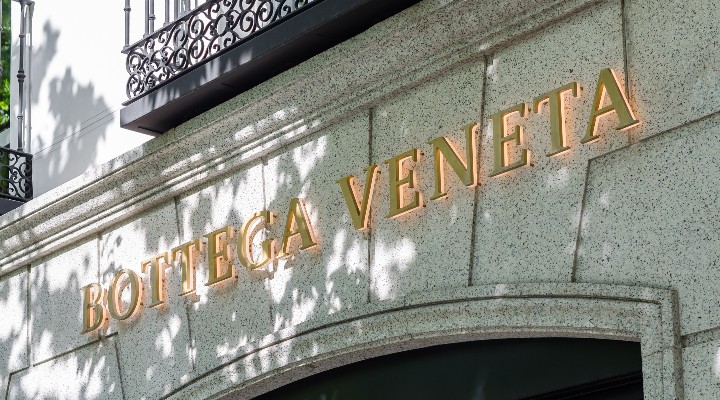At global luxury business Kering, sustainability and luxury are one of the same, and the company is well on its way to reducing its carbon footprint by 40 per cent by 2025. During the recent Global Fashion Summit in Copenhagen, Marie-Claire Daveu, Kering’s chief sustainability and institutional officer, and Bottega CEO Leo Rongone revealed Kering’s strategies towards sustainability and its vision for the future. Kering is the parent company for luxury brands including Gucci, Saint Laur
t Laurent, Bottega Veneta, Balenciaga, Alexander McQueen, Brioni, Boucheron, Pomellato, DoDo, Qeelin and Kering Eyewear.
“François-Henri Pinault, CEO of Kering put sustainability at the heart of the company’s strategy more than 20 years ago, he was convinced that it was good for ethical reasons, but also for business reasons,” Daveu noted. “In 2022, we will see more and more asset managers in the financial community and financial analysts… asking questions linking sustainability.”
“The vision of Francois Henri Pinault was very clear, he wanted Kering to be identified as one of the most sustainable companies in the world. So that’s why he decided to put in a strong governance for sustainability,” she added.
Kering aims to repurpose 1 million hectares of conventional agricultural land towards regenerative agriculture.
“We try to tackle the sourcing of materials, such as leather, cotton, silk and cashmere sourcing and we never forget the animal welfare dimension, so we include this in our leather sourcing practices,” Daveu explained.
Kering’s roadmap from 2017 to 2025 forms the foundation of its latest sustainability push. The group aims to reduce its carbon footprint by 40 per cent by 2025. Eighty-eight per cent of its raw materials are traceable, and 93 per cent of its footprint comes from the supply chain. Kering is also working with Conservation International, an American NGO, that is focused on biodiversity.
According to Daveu, the company is focusing its efforts on sustainable sourcing, with 73 per cent of sustainable leather, 100 per cent of gold and 30 per cent of organic cotton purchased from responsibly sourced suppliers. The business also owns a library of 3,800 samples of sustainable fabrics that are updated constantly.
“We have regular sustainability reviews, and it is linked to our financial results too. From the designers to the CEO, we are all sparring partners as we try to understand how to follow the roadmap but also discuss plans internally if we encounter any challenges along the way,” she explained.
Value over volume
“[At Bottega Veneta] we prioritise value over volume, and we value craft and creativity,” Rongone said. The brand does this by creating the highest quality product that encompasses extraordinary design and craftsmanship.
“We create essential collections, we do not follow market trends, and we rather create singular objects that form a wardrobe,” he added. This allows Bottega Veneta to reduce the number of styles that are to be depleted by the end of the season.
Recently, the brand launched the Bottega Veneta Series, where customers can buy bags from past collections.
“Being an inclusive brand with an exclusive product, where discretion is louder than a logo, we definitely prioritise value over volume,” Rongone explained.
“Our inventory, or archive, is all very well curated, and it starts all the way back from 1966, and we can offer limited quantities of our collections to clients.”
Rongone is of the opinion that everything starts with design – including sustainability.
“There is this quest for authenticity, sustainability and we provide that by releasing exquisite and extraordinary products that last forever; our collections are timeless, yet extremely relevant, our items transcend trends, and that’s our aesthetic.”
He cites Bottega Veneta’s latest collection at the Milan Fashion Week as a prime example.
“Irrespective of your age, gender or style, if you added one of those pieces to your wardrobe, it would have been a touch of unconventional elegance, I would say, sophisticated coolness.”
“Sustainability is like a science”
At Kering, an internal digital tool and app creates sustainability ratings for every product that the business produces. Ratings are generated based on the sustainability of the raw materials, supplier requirements and overall biodiversity parameters.
“This is a serious subject. Sustainability is like a science, it has tons of parameters, and it has complexity, so how do we create a language that unifies the entire organisation? That’s why we created this app,” said Rongone.
The app is linked to the brand’s 2025 sustainability goals and designers can choose suppliers that meet their sustainability requirements and internally, teams can ensure their goals are met. The process provides a good avenue for engagement, from designers right through to production and shopfloor personnel.
Daveu also mentioned Kering’s recent investment into Californian start-up VitroLabs, which makes cell-cultivated leather that replicates animal hides. At the time of the announcement, Deveau said that part of Kering’s roadmap is dedicated to sustainable innovation and actively searching for alternative materials that can reduce the business’ environmental impact in the long-term.
“2035 is fast approaching, and as an industry, we are running out of time, so we have to do things at scale,” Rongone said. “We are well on our way to reducing our greenhouse gas emissions by that time.”
Interestingly, Rongone also mentioned that Bottega Veneta is working on a soon-to-be-announced lifetime warranty program so customers can have their bags repaired in the future.
“We really believe that true luxury requires time, our clients regard our products as treasures and appreciate value over time; it’s going to sustain and amplify our poetic narrative, our vision of the luxury industry,” he concluded.

